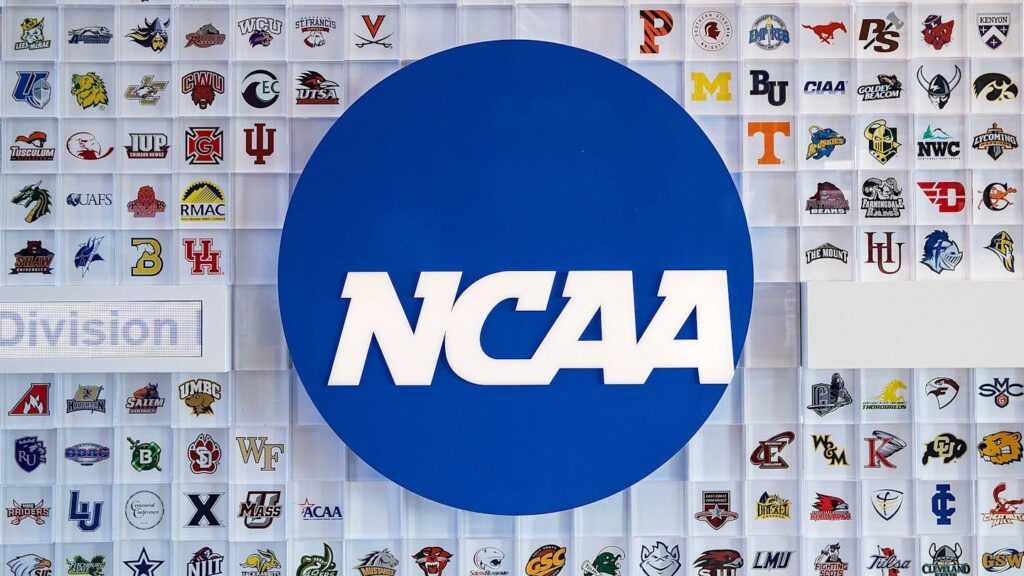The NCAA has officially approved a significant policy change permitting student-athletes and staff to engage in betting on professional sports, marking a pivotal shift in the organization’s longstanding approach to gambling. This landmark decision, announced recently, aims to modernize the NCAA’s stance amid the rapidly evolving sports betting landscape across the United States. The move opens new avenues for involvement in legal sports wagering while maintaining strict boundaries to protect collegiate competition integrity.
NCAA Greenlights Betting on Professional Sports for Student-Athletes and Staff
In a landmark policy shift, the NCAA has officially permitted student-athletes and staff members to place bets on professional sports, a move that reflects the evolving landscape of sports gambling across the United States. This decision breaks from the traditional stance that strictly prohibited any form of betting involvement by those connected to collegiate athletics. The change aims to provide clear guidelines and reduce the risks associated with illicit betting activity by giving athletes and staff a regulated environment to engage in wagering on pro leagues only, explicitly excluding collegiate contests.
The new policy emphasizes responsible betting practices and includes several safeguards to protect the integrity of college sports. Key points of the guideline include:
- Bets are limited strictly to professional sports leagues such as the NFL, NBA, MLB, NHL, and major international events.
- Prohibition on betting on NCAA or other collegiate competitions remains in full force.
- Mandatory education programs to help student-athletes and staff understand risks and regulations related to sports betting.
- Enforcement mechanisms to monitor compliance and address violations promptly.
This policy change opens up new opportunities for athletes and staff while reinforcing the NCAA’s commitment to ethical participation and the prevention of gambling-related corruption.
| Aspect | Policy Detail |
|---|---|
| Allowed Betting | Professional sports only |
| Prohibited Betting | Collegiate sports & events |
| Education | Mandatory annual training |
| Compliance | Monitored by NCAA enforcement |
Analyzing the Impact on Integrity and Compliance in College Athletics
The NCAA’s recent policy shift marks a historic pivot in college sports regulation, breaking decades of stringent betting prohibitions. While the move formally permits student-athletes and staff to legally wager on professional sports, it simultaneously raises critical questions about safeguarding the core values of integrity and compliance in college athletics. The blurred lines between permissible bets on professional leagues and prohibited wagers on collegiate contests introduce new vulnerabilities, necessitating robust oversight mechanisms to prevent conflicts of interest and potential exploitation.
Key challenges now facing institutions include:
- Developing clear educational programs focused on ethical betting behavior.
- Enhancing monitoring systems to detect suspicious activities linked to gambling.
- Maintaining transparency in compliance reporting to uphold public trust.
- Implementing strict disciplinary frameworks in case of violations.
| Aspect | Potential Impact | Response Strategy |
|---|---|---|
| Betting on Pro Sports | Increased legal engagement with betting markets | Targeted compliance training & risk assessment |
| Risk of Insider Information Misuse | Threat to fairness and competition integrity | Stricter monitoring and reporting requirements |
| Compliance Complexity | Challenges in rule enforcement | Here is the completed table row for “Compliance Complexity” along with a full summary: |
| Compliance Complexity | Challenges in rule enforcement | Streamlined policies and enhanced interdepartmental coordination |
| Restriction | Description |
|---|---|
| Prohibited Bets on Collegiate Events | No wagering on NCAA or other college-level sports involving the athlete’s institution. |
| Conflict of Interest Declaration | Mandatory disclosure of any personal connections to sportsbooks or betting entities. |
| Regular Compliance Reviews | Periodic audits ensuring adherence to betting policies. |
Recommendations for Universities to Educate and Monitor Betting Activities
Universities must proactively establish comprehensive educational programs that address the complexities and risks associated with betting on professional sports. These initiatives should include mandatory workshops, interactive seminars, and easily accessible resources tailored for student-athletes and staff. By highlighting the potential consequences of problem gambling and integrity violations, institutions can foster responsible behaviors while maintaining fair competition standards.
- Implement ongoing gambling awareness campaigns
- Collaborate with mental health professionals to offer support
- Distribute clear guidelines on permissible betting activities
- Use digital tools to track educational progress
In parallel, a robust monitoring framework is essential to deter unethical conduct linked to betting. Universities should leverage data analytics and partnership with sports integrity organizations to detect irregular wagering patterns. Transparency and regular reporting will strengthen trust within athletic programs and the wider community. Additionally, establishing clear disciplinary procedures ensures accountability while supporting the rehabilitation of affected individuals.
| Strategy | Purpose | Benefit |
|---|---|---|
| Automated Betting Activity Alerts | Identify unusual betting behavior | Early intervention |
| Regular Integrity Audits | Assess compliance with betting regulations | Maintain program reputation |
| Anonymous Reporting Channels | Encourage whistleblowing without fear | Uncover hidden violations |
Concluding Remarks
The NCAA’s approval to allow student-athletes and staff to bet on professional sports marks a significant shift in collegiate athletics policy, aligning with broader trends toward legalized sports wagering nationwide. As this new framework takes effect, institutions and individuals alike will face the challenge of navigating the fine line between opportunity and integrity. Stakeholders will be closely watching how these changes impact the culture and governance of college sports in the months to come.





